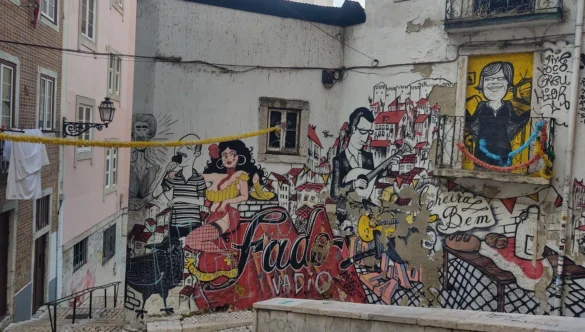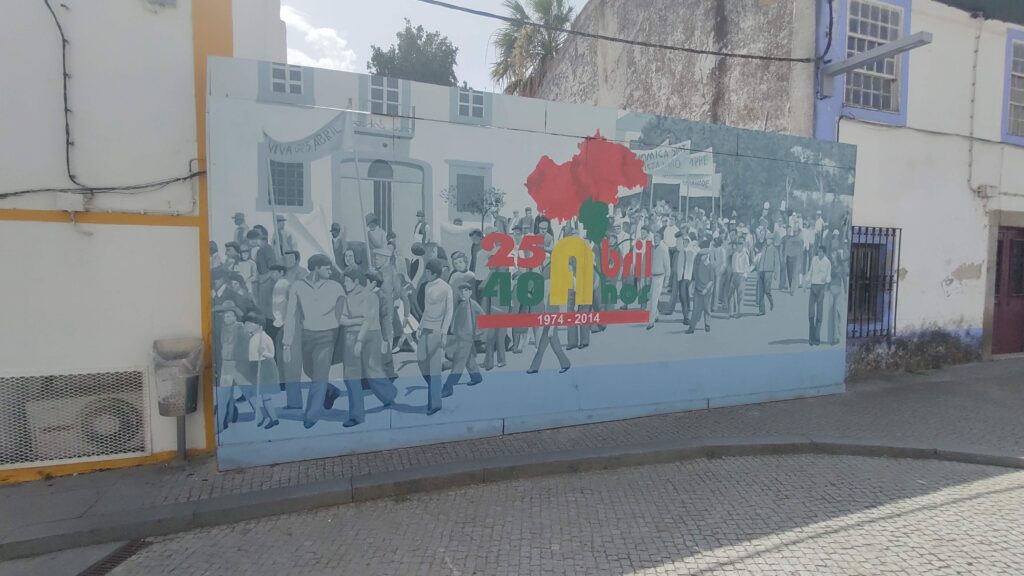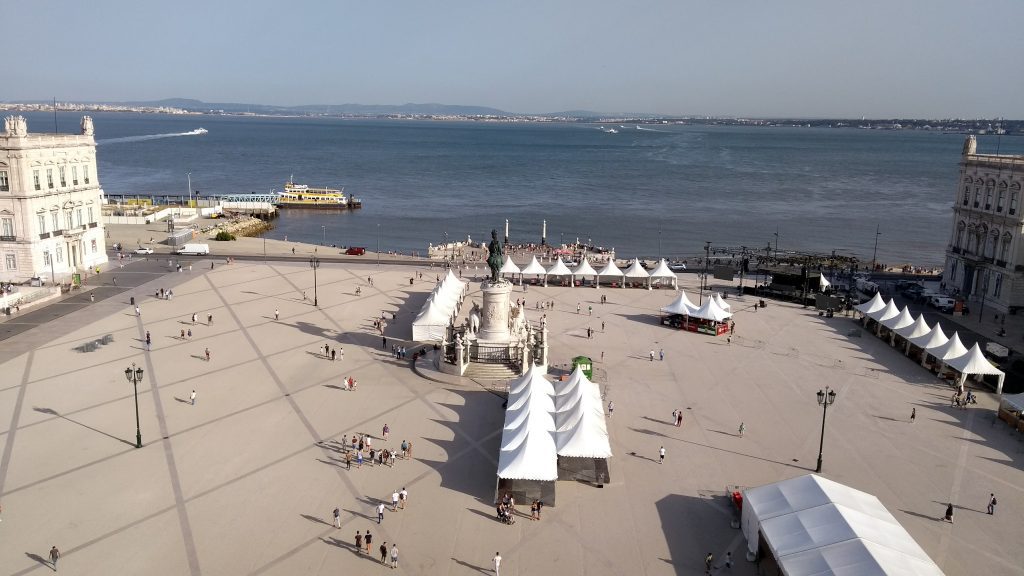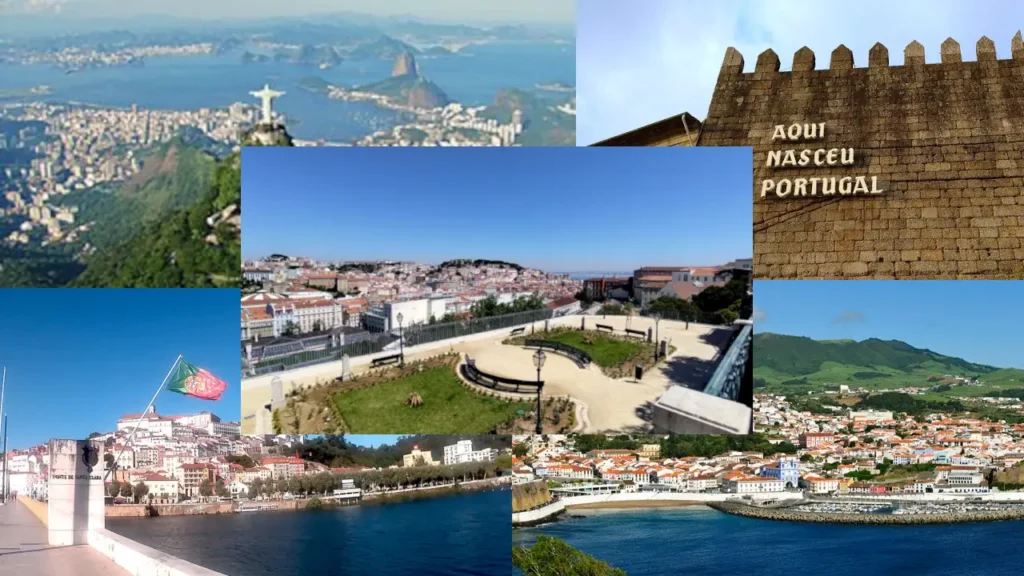Saudade: What does it mean?
Maybe the most typical Portuguese word is Saudade. But what does it mean? What is the origin of this word? And why is it so typical Portuguese? A lot of questions about a single word. In this post, I want to try to explain this word for you. So, you learn some more about this wonderful word.
What are the topics of this post?
What does it mean? * Why is it so typical Portuguese? * What is the origin?
keywords:
#portuguese, #language, #saudade, #melancholy, #nostalgia, #fado
What does it mean?
Some Portuguese words are difficult to explain or to translate in other languages. Because they are telling a feeling, emotion and contains more context as only a simple word. One of the most famous Portuguese words in this kind is Saudade. But what does it mean? What feeling does it express? Read further to discover more.
Saudade means emotions, memories and a desire
"An emotion full of melancholy, nostalgia and luck"
Saudade is a word to express an emotional state. You can describe Saudade as a feeling or emotional state full of melancholy, nostalgia and lucky feeling. The lucky feeling we are talking about is more about lucky feeling of a past memory. There are melancholy and nostalgia again.

"A grateful memory"
The content of Saudade goes about a grateful memory of an absent person or a moment of the past. Also about accepting the current situation and a sort of predestination. Accepting how the things are at this moment, but at the same time longing for the good things out of the past they never come back. Hoping they come back someday but knowing that normally they never come back again.

"A desire to something that not exists"
A constant vague desire for something that does not exist and probably never will exist, maybe even cannot exist. No discontent or sadness. But something other than the present, a turning towards the past or the future of a sort of of dreamy wistfulness. So, Saudade also goes about hope.
Not possible to explain in 1 word
These are the most important reasons why Saudade is so difficult to explain in another language. Because it is a mix of so many words, feelings sentiments and emotions together in one word. Isn't it nice? The possibility to have one single word for a whole explanation. This brings us to the fact that Saudade is not only a Portuguese word to explain an emotional state. It also is part of the Portuguese soul and way of living. The next point explains you more about why Saudade is deep connected with the Portuguese culture.
Why is Saudade so typical Portuguese?
"Part of the soul"
Saudade is not only a Portuguese word to explain an emotional state. It is deep connected with the Portuguese culture and part of the Portuguese soul and way of living. Yes, it also is a way of living.
Saudade as a way of living
"Enjoy your life"
As already told above, Saudade is not the feeling of sadness and loss, but more of absence, hope and wistfulness. This is so deeply connected with the Portuguese culture that it also reflects in the way of living. In the Portuguese culture they understand very well that you don't always have the power. So, enjoy the small things in life and love all those wonderful things around you very deeply.
"Be thankful in a minimalistic way of living"
This is part of a minimalistic way of living. Minimalism strives to reach a goal or achieve an effect with the simplest possible tools. Don't make it too hard if it is not needed, don't want always more. Be happy and thankful with what you have, also when it is not as much as you want or what you want. There comes Saudade again, the dreamy hope and wistfulness to have or do better. The absence of who or what is now and maybe never will come (back).

Saudade as emotion in Fado-music
"Express the emotions of Saudade"
Cause Saudade is about emotions and feelings, there is no better way to express all these feelings as in music. This brings us to Fado, the typical Portuguese music. Fado is a music genre originated in the 19th century in the historical heart of Lisboa and is the best expression of the Saudade. The music genre of Fado is marked also by melancholy, nostalgia, hope, absence, luck and a dreamy wistfulness of someone who never will come back. These are exactly the same sentiments of Saudade.
What is the origin of Saudade?
A Latin origin
Portuguese is a Romance language which derives from the Latin. Saudade comes from the Latin word "Solitate", which means solitude or loneliness. Afterwards it should be influenced by the Portuguese verb "saudar", which means "to greet". Or in other words "Greet the loneliness".
Influenced by the Moors
The Iberian Peninsula also knew a Moorish time. The whole peninsula was influenced by the Arabic world. So, another source tells that the word Saudade could come from the Arabic word "Sawdā", which stands for a dark and melancholy mood. The colour of Fado is black.
A high-stakes debate
As you understand, this is a high-stakes debate. Because Saudade is a word deeply connected with the Portuguese culture, entity, expresses a lot of emotions, feelings and sentiments and is part of the Portuguese way of living. So, I will never participate in such a debate.
Read More
"Selected for you"
You want to read more and get noticed about the posts ideal for you. Subscribe to our newsletter. This is the ideal way to stay tuned about all our posts and videos in the spotlight and selected for you.
The content of this page is copyright of Lindo Portugal.
© 2023 lindoportugal.eu
With media content of Galeria Sámuel.







